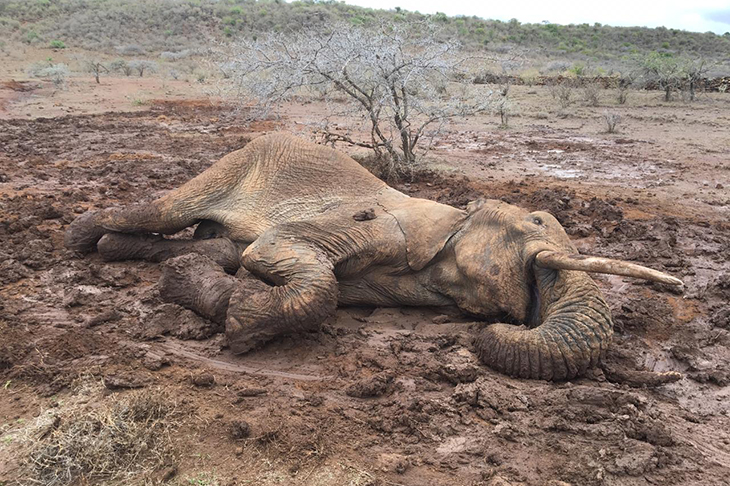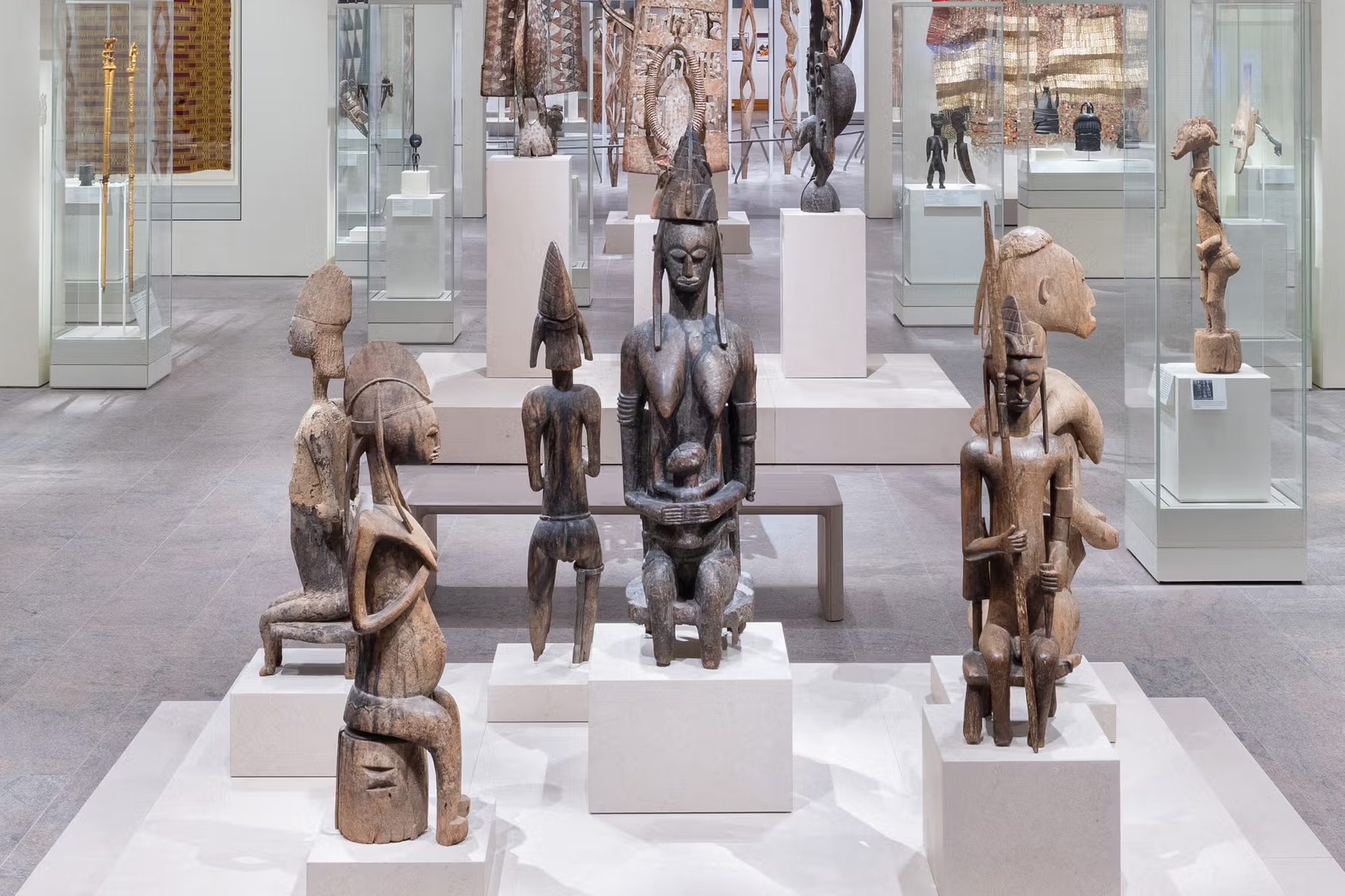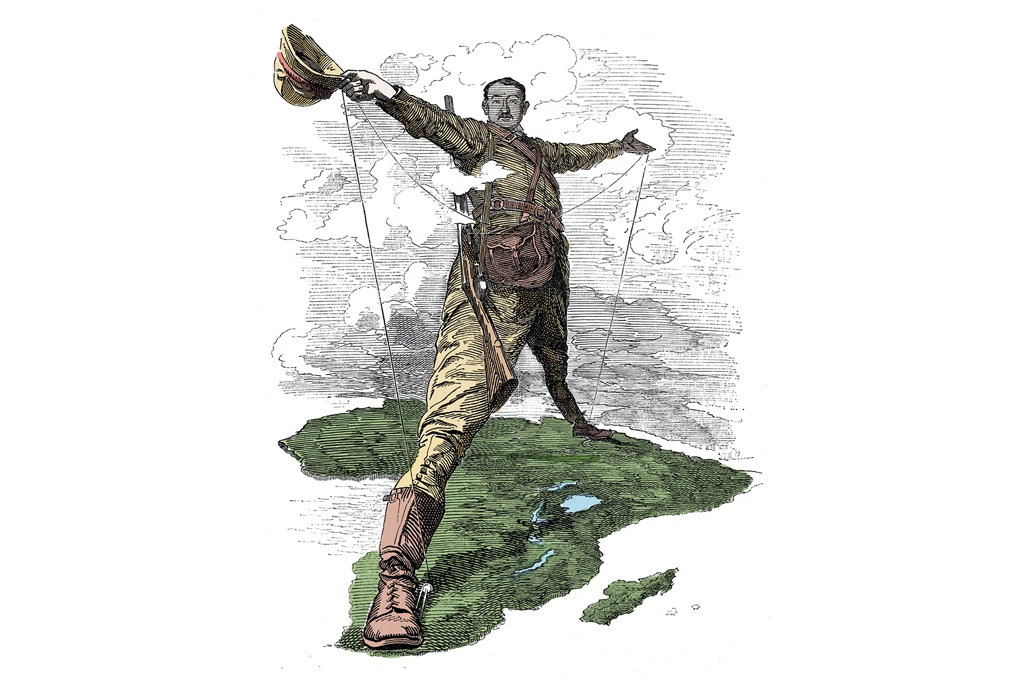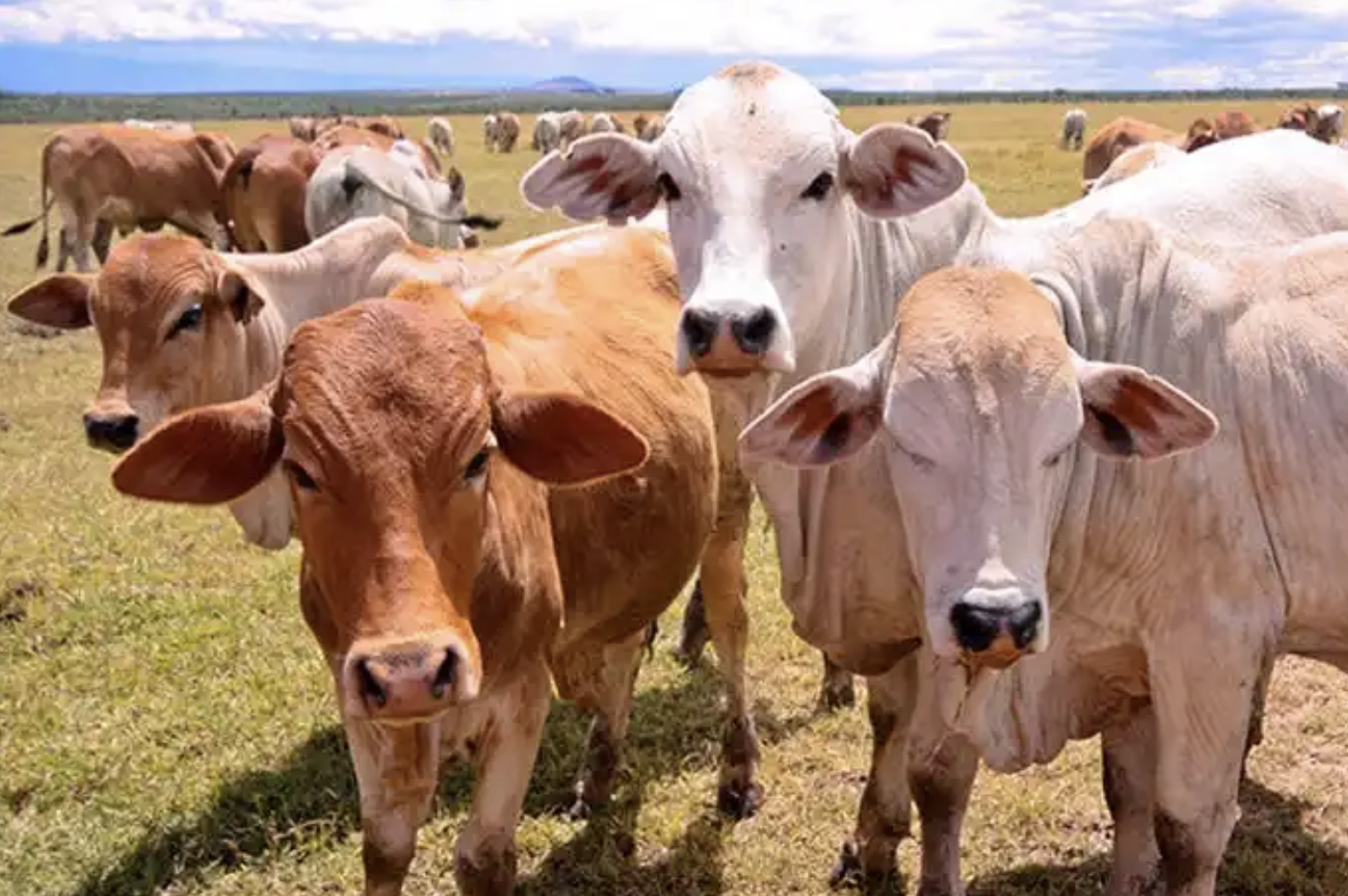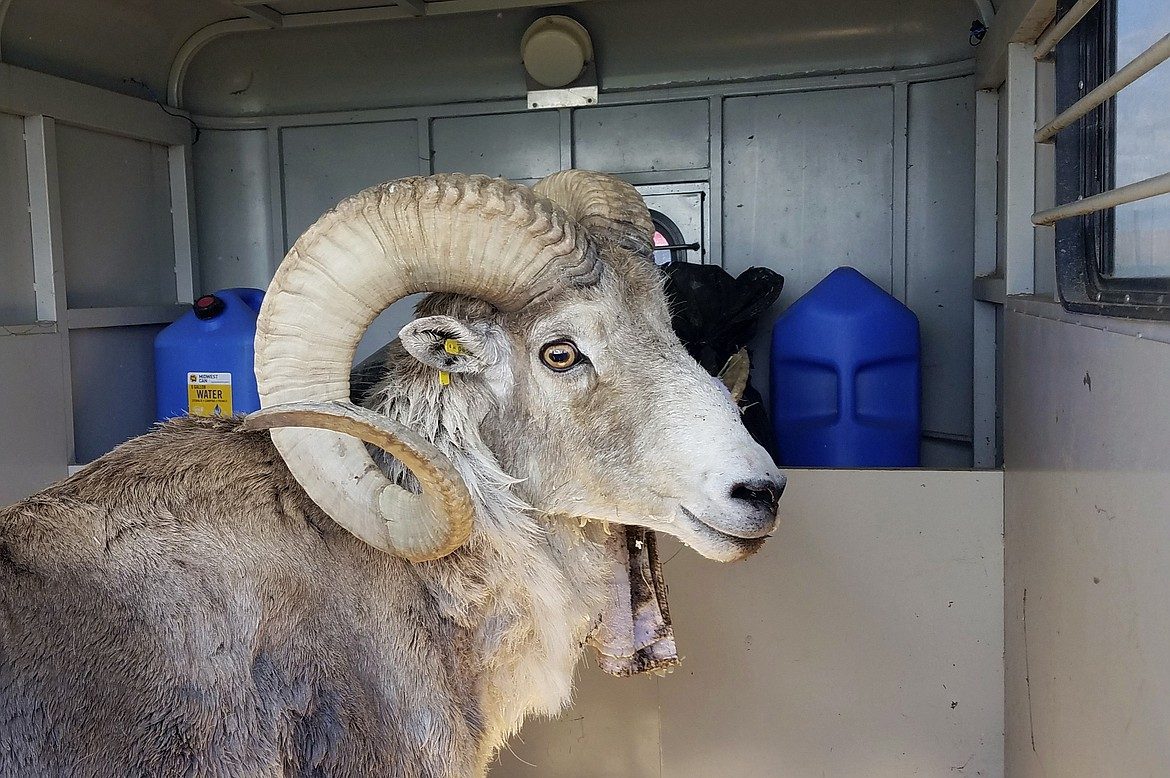Laikipia, Kenya
‘An elephant has fallen over,’ said the man running up to me. My first thought was that poachers had killed the animal for its tusks. ‘Has it been shot?’ The man shrugged. ‘He was eating leaves, then he just fell over.’ As Claire and I made our way to the place, I was worried. Around our home, where we see elephants almost daily, I have come to learn that our destinies are closely interwoven. Meet a calm elephant who goes on browsing while gently billowing his ears because his herds are not being hunted and we know our valley is at peace. A skittish elephant is
a harbinger of danger, a sign that poachers or armed raiders are about. The time I found a carcass with its tusks hacked out — faceless, bloated, its gray hide streaked with white vulture droppings — is etched in my memory as the start of a season of raids and attacks.
Elephants are also like a barometer of human survival in our area, because they require huge rangelands of forests and pasture. I know this does not apply to most of Africa, but around us happy elephants mean healthy landscapes. As the charcoal burners destroy the wilderness, as the bush is cleared to make way for shacks and farms that swiftly become dusty wastelands, the rains disappear with the topsoil and the elephants die out but they do not go quietly. In the shadow of Mount Kenya’s melting glaciers, I have seen an elephant-flattened man, bashed repeatedly into the ground. What was most striking about the scene was the evident vengeful anger of the attack — as if that animal had done it as a warning to the rest of us.
We found the elephant lying on his side in a pool of mud and surprisingly, he was still alive. Right away I recognized him as one of the old bulls who have roamed our valley for decades, usually moving around with his club of old gentlemen bulls. He was prone but still immensely powerful, churning his legs and flapping his ears and trunk. It was clear he could not get to his feet at all. I got very close, trying to find signs of a bullet wound, a snare wire or a spear. I began to think he must have broken a leg. His tusks were only about 30 or 40lb but he seemed very elderly and starved. It had not rained properly on the farm for nine months and there was no food. In the spot where he fell, he had been peeling off the yellow bark of the fever trees, a bitter chewy food that must have had little goodness in it. On the morning he fell, it had rained for the first time and the whole area was slippery mud.
I have never been so close to a wild elephant. I found myself studying the rippling hide, the hairs on his enormous tusked head and trunk. He reminded me of a giant octopus with his great limbs roiling in the mud. He gazed at me through a big golden eye, sighed from the bellows of his lungs and then he did something extraordinary. He used his trunk to suck up a muddy puddle of water and he squirted it at me with hosepipe strength. To me he seemed to be saying: ‘Don’t just stand there, do something — or go away.’ In the noonday heat he now sucked up more water and this time he splooshed it over his head to cool off.
I told Claire I thought there was no hope for the old boy. I called the Kenya Wildlife Service and they said they would send a vet with his team. I rather scoffed at the idea that the elephant could be saved, but the rangers arrived a few hours later. After studying the old bull closely, the vet concluded the elephant had no injuries at all, which was incredible. I had expected they would find a mortal wound and put the old fellow out of his misery. I was so depressed by this
I did not want to stick around and watch them put him down.
Instead, with brisk efficiency the rangers reversed their Land Rover near to the elephant’s bottom, tied a sturdy rope to the tusk closest to the ground, hitched this to the vehicle and then drove slowly away. The rope pulled the bull’s head upwards until he was forced to stand up — at which point everybody ran in all directions and the elephant took off into the wilderness at great speed. The mud had just been too deep for the old boy and he had not been able to get to his feet. Everybody was delighted.
This article was originally published in The Spectator magazine.



